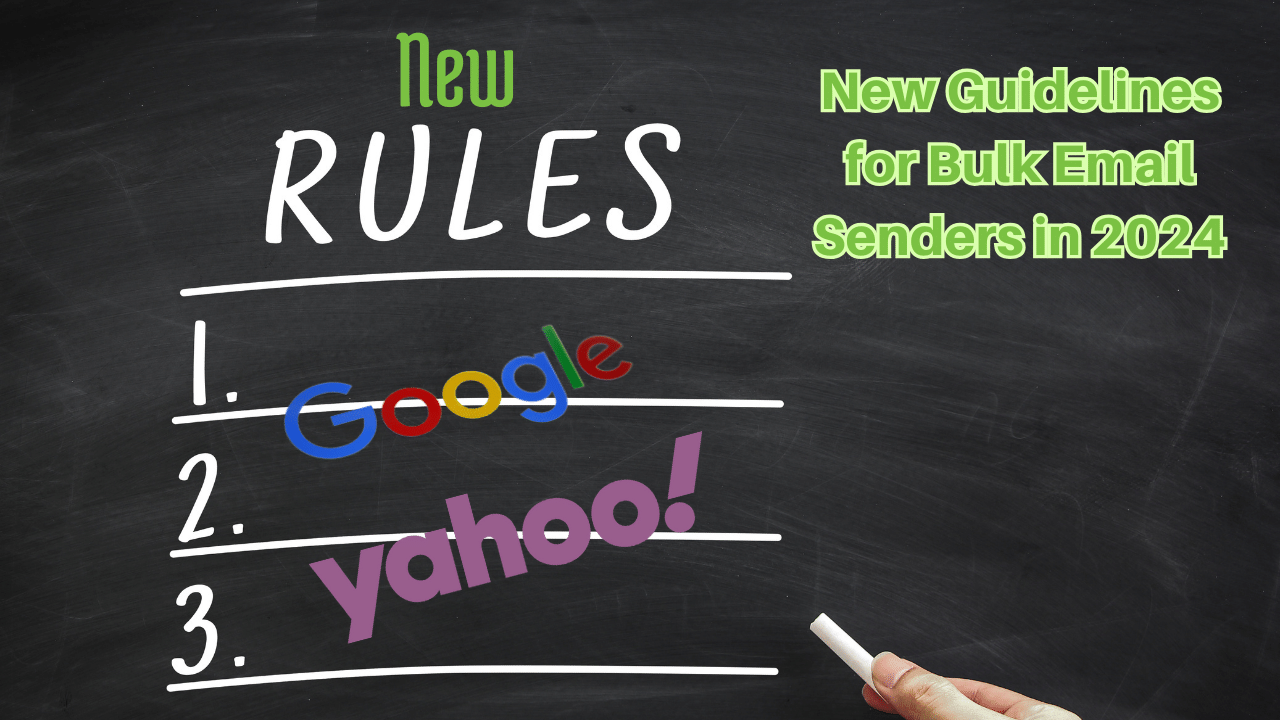As we push deeper into the digital age, the nature of email marketing continues to evolve, often dictated by the policies of tech giants, Google and Yahoo. In 2024, both companies have introduced new guidelines for bulk email senders that reshape the landscape of email marketing. We are here to shed light on these changes and help you navigate this new terrain for maximum marketing efficacy.
Bulk email senders, often referred to as Email Service Providers (ESPs), are a crucial element in the marketing toolkit of many businesses. They allow companies to communicate with an extensive list of customers or subscribers simultaneously. Yet, with the potential for abuse, the guidelines governing this practice have become more strict.
Enhanced Email Verification Standards
The first significant change in both Google and Yahoo’s guidelines is the introduction of more robust email verification standards. Both tech giants now require ESPs to comply with their Domain-based Message Authentication, Reporting, and Conformance (DMARC) policies. This policy enables them to verify that incoming emails are genuinely from the domains they claim to be from, reducing phishing and spoofing attempts.
Limit on Daily Email Send Volume
Google and Yahoo have also implemented daily caps on the volume of emails that a single ESP can send. The specific number has not been released publicly to prevent gaming of the system, but the impact is clear – email senders must prioritize quality over quantity.
Stricter Spam Filters

ESPs will also face stiffer penalties if their emails are consistently marked as spam. High spam percentages will lead to automatic blacklisting, and the ESPs may find their deliverability rates plummeting. Therefore, it is highly advisable to maintain a clean list of subscribers and avoid spam-like content.
Mandatory Unsubscribe Link
In a move that prioritizes user experience, both Google and Yahoo now require all bulk emails to include an easy-to-find and straightforward-to-use unsubscribe link. This rule gives users more control over the kind of content they receive in their inboxes.
Time-Sensitive Email Sending
Google and Yahoo have introduced a policy to limit the sending of promotional emails during certain hours. This policy aims to reduce the clutter in users’ inboxes and ensure that marketing communications are delivered at optimal times for higher engagement.
Enhanced Data Security

Lastly, both companies now mandate ESPs to implement advanced security measures to protect user information. This step includes encryption of data in transit and at rest, routine security audits, and prompt notification of any data breaches.
In conclusion, the new guidelines from Google and Yahoo can be seen as a move towards a more secure, user-friendly email environment. Bulk email senders need to adjust their strategies and prioritize delivering quality content to engaged subscribers. Businesses that can adapt to these changes will find themselves better positioned to engage their target audiences effectively and ethically.



